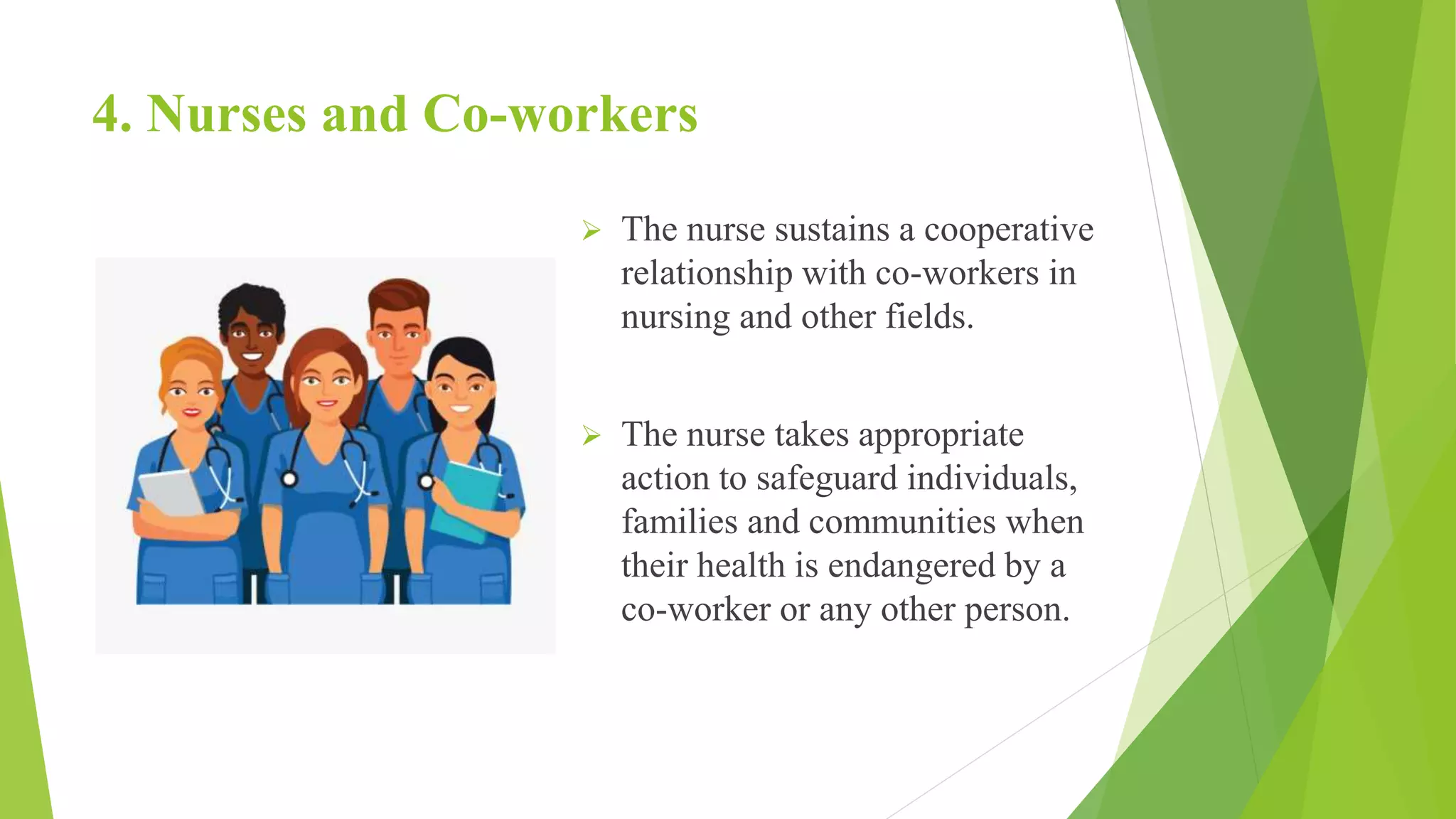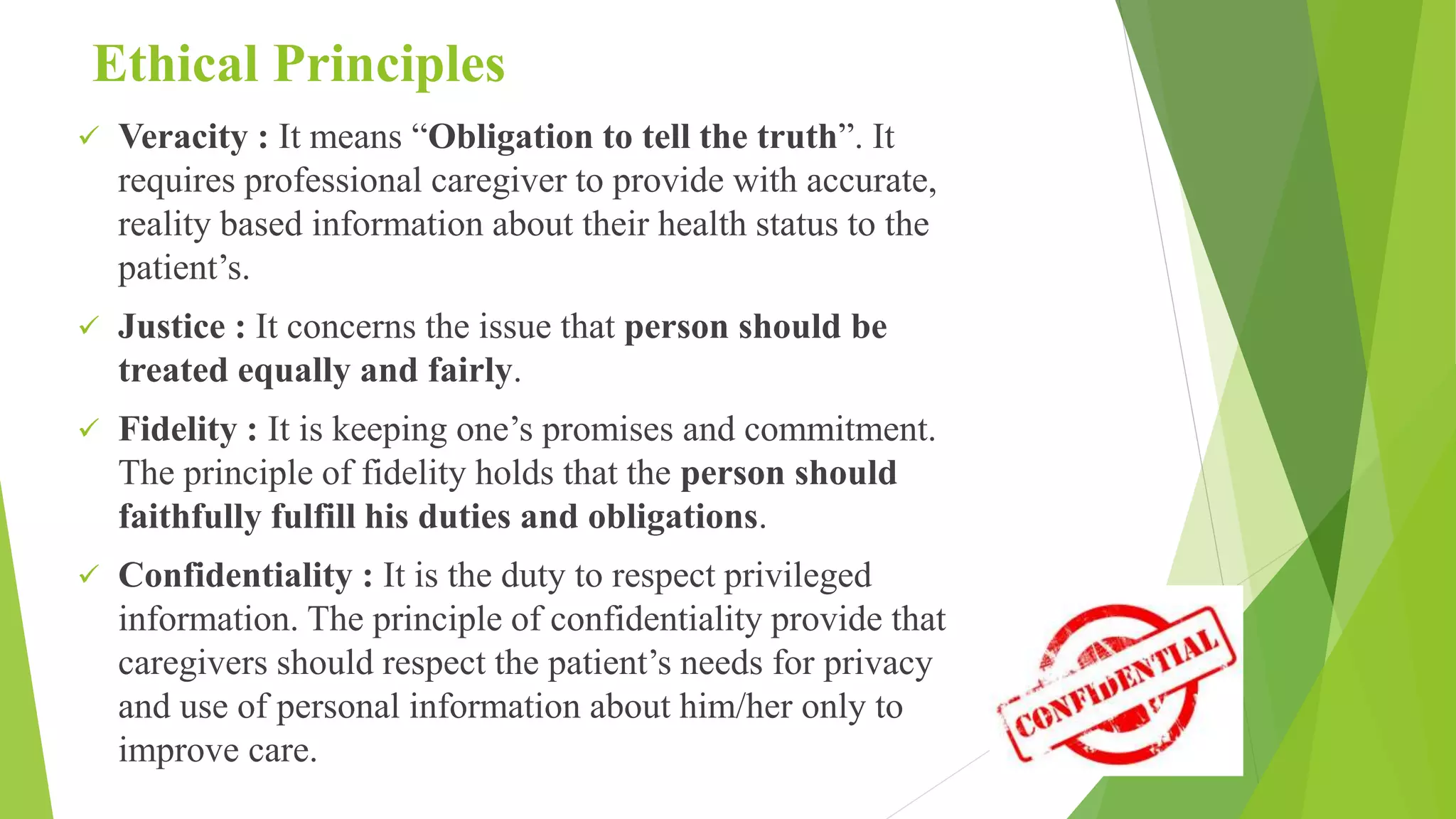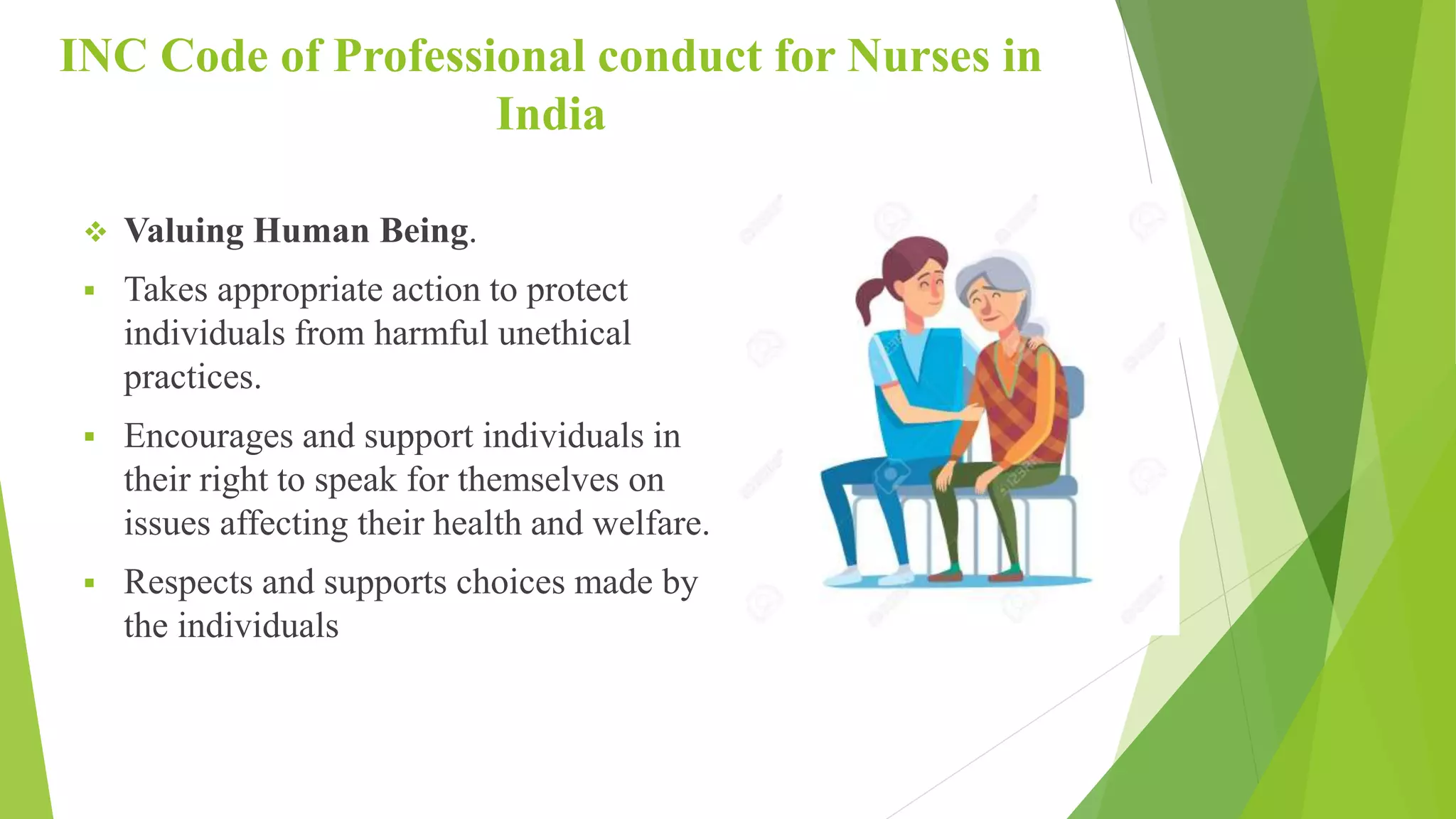The document provides an overview of the code of ethics and code of professional conduct for nurses in India as established by the Indian Nursing Council (INC). It defines key terms like ethics, nursing, and provides the specific ethical principles and 5 elements that make up the INC code of ethics for nurses. These principles guide nurses relationships with people, their practice, society, coworkers and profession. The document also outlines the INC code of professional conduct which establishes standards for nurses' professional responsibilities, nursing practice, communication and valuing human beings.

























